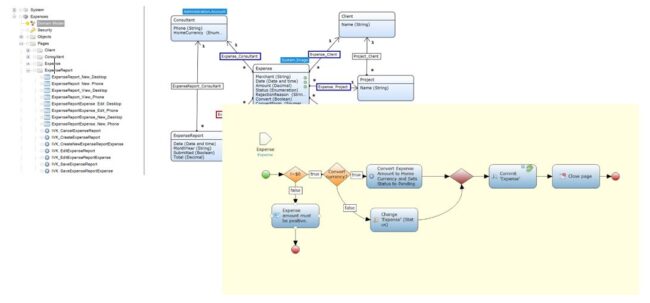Nearly two decades of experience working with software companies has taught me that the team is often what makes projects successful. My company has won “Best Places to Work” 14 times, but we learned how to build a successful team through a good bit of trial and error. Hopefully, these tips for team building, and specifically building a software development team, will get your team running smoothly in record time.
How to Build a Software Development Team
When building a team for a software project, there are five key elements businesses should consider.
- Start with a small team
- Validate the core product’s value
- Communicate clearly
- Be process mature, but flexible
- Don’t forget the things that make all teams successful
1. Start with a small team
It’s easy to get swept up in an exciting new project by throwing as many resources at it as you can. However, starting small is imperative to bring the vision to life and avoid financial loss and waste. In addition, a smaller team can adapt and pivot more easily as you determine the needs of the project. For example, I’ve seen an excellent application idea run into problems because it was immediately funded with a 10-person software development team hired out of the gate. The problem was that no one had curated the processes and development backlog for the team, so it turned into an inefficient mess that cost a lot of money and frustrated stakeholders and team members alike.
Just because you have the budget doesn’t mean it has to be spent right away. Starting with two to four team members in the project planning phase is a much better solution. The reality is that modern development requires adaptability. Since smaller teams are typically more adaptable, it will improve both cost and time efficiency to set the vision, architecture and ideas with a small team and grow from there.
2. Validate the core product’s value
When addressing an internal challenge or opportunity, the value of the software may be clearly and accurately defined. In contrast, projects seeking to bring a new idea or fresh spin to the marketplace likely need to be vetted more carefully to validate their value. In either case, all early project energy should be spent on getting a representative version of the idea in front of potential customers. Software for which the value is clear is likely to get massaged and improved by market feedback. For more innovative projects, it is best to find out early on if there is buy-in from the target audience, or if divestiture or major pivots are needed. Taking this step will give your software development team information which will prove invaluable in moving the project forward and inform if additional resources, including team members, are needed.
3. Communicate Clearly
It is essential for any team, but especially a growing one, that communication is flowing freely and accurately in both directions. The vision and values should be shared early and often from leadership so that each team member can communicate them at a high level. If the project values are well known, individual team members can ensure they make the best decisions regarding implementation, prioritization, and more. Your team will also feel valued if they can share recommendations and ideas that achieve the goals.
In addition, feedback should be encouraged and accepted by project leadership. Most modern development teams have retrospectives to share feedback regularly. For the team to be healthy, that feedback needs to go all the way to the stakeholders. Whether it’s a great new idea or tweaks in processes or approaches, the team has valuable insight to share. Additionally, any input from the end-users must make its way back up to the development team and stakeholders. I’ve seen software development projects where stakeholders didn’t adapt to user feedback, which initially eroded interest and engagement, and eventually led to the solution being abandoned or replaced.
4. Be process mature, but flexible
Healthy teams need to perform the essential rituals they know they should do, including planning and requirements, estimation, testing, CI/CD, UAT, retrospectives, etc. But it is not worth being dogmatic about there being only one right way to do things. Each team and project are different due to the dynamics and people involved. Do what makes the most sense for the project. In other words, be open-minded about how things are executed.
For example, exactly how a team estimates work depends on the specific project and could change over time. It is more important that estimates reflect the work being performed for the individual project and in a way that makes sense for the team versus doing it the way that some panel prescribed during a recent training.
5. Don’t forget the things that make all teams successful
As you’re building a healthy, strong software development team, consider the soft skills necessary to make the world go ’round. It is important to be kind and consistent, to take ownership and initiative, and to be invested in your teammates’ success. These qualities are the glue for a team to navigate the everyday challenges that software development presents. Lastly, be intentional about selecting team members not only because of their expertise but think about how personalities, attitude, and style will mesh with the rest of the team.
If you need help with project management, workflows or software development, InfoWorks consultants have the experience and skills to take your project from vision to launch. Contact us for more information.





